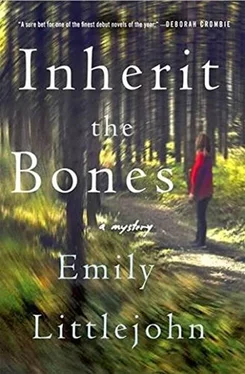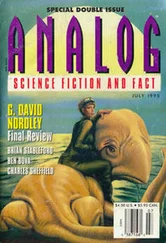Pabst began. “He’s returned, has he? I was afraid he might. Gemma, I fear the Woodsman will never leave you, not until you put some distance between the children’s murders and yourself.”
“I know, I know. That’s what you said the last time we spoke. But I can’t find the distance. I don’t know how.”
I hated how whiny I sounded. Pabst had worked so hard to get me in the habit of detailed journaling, diary therapy so to speak, and it was no one’s fault but mine that I let that practice slip. Life has a funny way of waylaying our best-laid plans; life keeps us busy in ways that seem, at the time, more important than self-care and introspection.
Maybe that was just an excuse, though. Maybe I was too afraid to take such deep, continuous searches into my own psyche.
Pabst stared at me over eyeglasses that were small on his pudgy face. He hadn’t worn glasses before; and I realized that Pabst had to be approaching seventy years old. Between his age and his weight, I feared for his health.
He said, “You do know how, Gemma. You’ve got all the tools, right there, in that toolbox we set up in your mind. You don’t give yourself enough credit, my dear. You never have.”
I swallowed the sudden lump in my throat. “Dean, I thought we had done it. I really did; he was gone for so long. I don’t understand why he’s come back, now.”
“Gemma, you do know why the Woodsman has returned. You are afraid to say the words out loud, because that will give truth to them. But you must,” Pabst said.
I nodded. “It’s the baby. This little girl who’s not even here yet has changed everything. She’s called the Woodsman back, and this time he’s brought friends, dead children who seem to think I’m the only damn person who can help them. Why is that, do you think?”
Pabst shrugged. “It’s not meant for us to understand the ways of the dead, Gemma. That’s not how the world works. You told me once that you’ve never cried for your parents. And yet you are unable to stop crying, in a sense, for the McKenzie boys. Often, it is easier for us to grieve for those we don’t know, than it is to grieve for those we love most.”
“My grandmother used to beg me to cry. She said she couldn’t stand seeing me so cold; that it wasn’t natural. But I never felt cold, Dean. I didn’t. I felt there was a dam inside me, and if I cried one tear, the whole thing would burst. That’s not cold, that’s self-control. That’s a good thing.”
Pabst nodded. “This is very normal, especially for children. Instead of allowing the grief to heal their pain, they direct their energy toward strengthening that dam, building it up higher and stronger. At some point, though, and that point is different for everyone, the dam becomes too high, and too strong.”
“And you think that is what’s happened to me?”
“Yes. I think you’ve displaced the grief you feel for your parents’ deaths onto the deaths of the two boys. The ability to compartmentalize your emotions drives your relentlessness, and speaks to your success as a police officer. But it creates the nightmares, too. Gemma, we talked through this a few years back. Will you try the journaling again? I do think it will help tremendously,” Pabst said.
He stood up and went to a cooler in the corner of the office. It was stocked with sodas and sparkling water and he handed me a San Pellegrino, knowing my preference. He took a Diet Coke for himself and settled back into his chair.
“The world is full of monsters. It always has been. For every monster, though, there are a hundred heroes. Mankind simply could not survive if the bad guys outnumbered the good guys; you know that, you live that truth every day in your chosen field,” Pabst said. “It’s natural for you to feel fear and despair now, with the impending birth of your first child. The Woodsman is the embodiment of that fear, a man whose very existence speaks to havoc, a complete void of hope.”
I nodded. “So what do I do now? How do I fight this monster of my dreams?”
Pabst smiled. “With science, of course. A bit of rational thinking and some dedicated journaling and you’ll be back to tip-top shape in no time. But tell me, Gemma, are you wrapped up in this Bellington mess? I don’t like to think of you investigating the young man’s death in your condition.”
I stood. “What condition would that be, the pregnant condition, or the crazy condition? Thank you for seeing me, Dean. It’s been, as always, enlightening. But you know I can’t discuss a case.”
“And you know I can’t let you leave without at least trying to get some juicy tidbit out of you. Do say hello to the Woodsman tonight, Gemma, if he returns. Tell him the good doctor is anxious to see him put down for good.”
When I pulled into the station’s lot, I saw a pack of reporters and cameramen lined up outside the front door like pigs at the trough. They were early; it was barely eight o’clock and the chief had promised them the Q &A at nine.
Using my belly like a small battering ram, I made my way through the throng of people. Officer Armstrong guarded the front door. He opened it wide enough for me to get through, and then quickly closed it with a slam and a roll of his eyes. Six and a half feet of former linebacker came in handy for crowd control.
Chief Chavez passed me in the hallway, a harried look on his face.
“You see this? Sheer madness out there,” he said. “We’re in HQ.”
I unloaded my shoulder bag and joined the others in the narrow squad room at the back of the station. Finn Nowlin and Louis Moriarty and Sam Birdshead sat at the table, notepads and pens ready, a lineup of cops at various stages of their careers. Baby-faced Sam, barely a month into life as an officer; Finn, almost fifteen years into a solid career; and Louis Moriarty, who was already a good five or six years older than the standard retirement age.
Sam and Moriarty nodded at me; Finn just grinned. I took a seat across from Moriarty and wondered again what he was still doing here. He could have been fishing the Arkansas with his buddies, cashing in on a decades-long career with the PD. At the end of the day, I figured he was one of those cops who wouldn’t know what to do with his time, if he retired. The job was his life. And he was good at it, still sharp and fit; seventy years old and Moriarty had never once come in less than second in our annual physicals. And this was against guys half his age.
The man gave cause for pause, as they say on the streets.
The chief leaned against the whiteboard. I guessed Lucas Armstrong, what with the door duty, had been excused from this meeting. That was too bad; Luke had a good eye for details that others, including myself, often missed. Plus he was funny as hell and he walked a straight line on the job. I knew Armstrong too was still struggling with the stuff that went down on the home invasion case a few months back. There was an icy quality to his relationship with Finn that hadn’t been there before.
Chavez indicated that I should join him at the board.
“You all caught the news last night, right? I had a feeling once this went public, we’d be looking at a whole new tempo,” the chief said. “Gemma, can you catch us up with what we know so far?”
I nodded. “Absolutely. Obviously, we have a time of death: sometime around noon on Monday. We’ve also got a cause of death: blood loss, but we don’t have a murder weapon. We don’t even know what type of weapon we’re looking for; the victim’s throat was cut in such a matter, and with such a tool that we can’t be sure what was used. Sam and I are knee-deep in interviews with the circus employees, but so far-”
Finn Nowlin coughed and then cleared his throat.
Читать дальше

![Лаура Бренз - Потомственная ведьма[Inherit the Witch]](/books/79609/laura-brenz-potomstvennaya-vedma-inherit-the-witch-thumb.webp)










